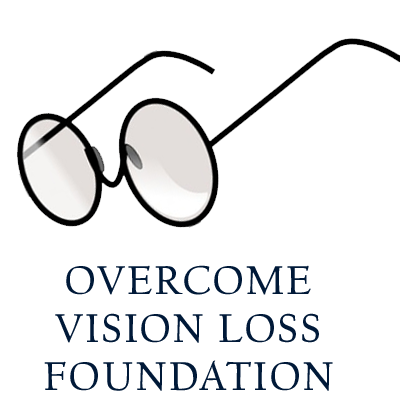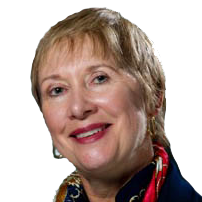General Gale Pollock supports visually impaired kids affected by the earthquake in Turkey from WeWALK on Vimeo.
We have listened long enough to the pessimists

In March of 1906, unable to preside over a public meeting of the Association for Promoting the Interests of the Blind, deafblind activist and author Helen Keller instead sent the following stirring letter to her good friend, Mark Twain. On the day of the event, Twain, who was chairing the meeting in Keller’s absence, read her stunning letter aloud to all attendees and later included it in his autobiography, predicting that it would “pass into our literature as a classic and remain so.”
It’s very easy to see why.
(Source: Autobiography of Mark Twain: Volume 1; Image: Helen Keller, via.)
Wrentham, Mass., March 27, 1906
My dear Mr. Clemens:
It is a great disappointment to me not to be with you and the other friends who have joined their strength to uplift the blind. The meeting in New York will be the greatest occasion in the movement which has so long engaged my heart: and I regret keenly not to be present and feel the inspiration of living contact with such an assembly of wit, wisdom and philanthropy. I shall be happy if I could have spelled into my hand the words as they fall from your lips, and receive, even as it is uttered, the eloquence of our Newest Ambassador to the blind. We have not had such advocates before. My disappointment is softened by the thought that never at any meeting was the right word so sure to be spoken. But, superfluous as all other appeals must seem after you and Mr. Choate have spoken, nevertheless, as I am a woman, I cannot be silent, and I ask you to read this letter, knowing that it will be lifted to eloquence by your kindly voice.
To know what the blind man needs, you who can see must imagine what it would be not to see, and you can imagine it more vividly if you remember that before your journey’s end you may have to go the dark way yourself. Try to realize what blindness means to those whose joyous activity is stricken to inaction.
It is to live long, long days, and life is made up of days. It is to live immured, baffled, impotent, all God’s world shut out. It is to sit helpless, defrauded, while your spirit strains and tugs at its fetters, and your shoulders ache for the burden they are denied, the rightful burden of labor.
Last year, the Columbia Lighthouse for the Blind hosted its first annual “Lighting the Way” Gala at the French Embassy. Vietnamese-American chef Christine Ha received the Lamplighter Award and did a cooking demonstration for the audience. She has a long résumé of culinary accomplishments, including cookbooks, a food blog and an award-winning restaurant. In 2012, she won the MasterChef competition, of Gordon Ramsay fame. Christine is also blind.
Tony Cancelosi, the President and CEO of Columbia Lighthouse for the Blind, wants other visually impaired children to follow in her footsteps, achieving great things in spite of their disability. His organization is their support network.
A century ago, the world was an unfriendly place for the blind. Schools, the workplace and public infrastructure did not accommodate for them. The Columbia Lighthouse for the Blind (CLB), founded in the early 1900s, has been fighting to make the world friendlier for the visually impaired. First, it focused on helping the blind survive with life skills and, in recent decades, on helping them earn a stable living.
Tony Cancelosi, the current President and CEO, continues the fight. Before taking the helm 14 years ago, he served as CEO for several technology software companies, and before that, he was one of the founders of education program now called Sylvan Learning. Helping others had always been a priority for Tony, serving on nonprofit Boards that fought for the disabled or for veterans.
Today the District is one of the most progressive places in the country for the visually impaired.
This is especially true in education. To help schools offer Braille instruction for visually impaired students, CLB trains and provides teachers. “Braille,” Tony says, “is what allows students to accelerate their learning. It’s how they will make it to high school and college.” It’s best to teach kids Braille when they are young so that they never fall behind. Tony and other community leaders are now working with Councilmember David Grosso to increase access to Braille instruction in D.C.’s public and public charter schools.
It’s also important to catch visual impairments early, preferably at preschool. That’s why the organization runs a mobile vision testing van, which offers eye exams. CLB looks forward to adding another Mobile Eye Care unit to the existing program, generously funded by Providence Health System and Ascension, to specifically serve Wards 5, 6, 7, and 8 in the District.
CLB also teaches life skills. It runs a youth pre-employment summer transition program where high school students spend three weeks at Catholic University. They do short internships, interact with faculty and learn how to live independently.
The organization fights for making day-to-day life easier to navigate for the blind, too. It developed an app for using the DC Metro and bus system and helps make websites more accessible. It’s engaging with Comcast to extend their messaging about the importance of accessibility.
...ONE STEP FURTHER - Running Without Equal
Follow the link above to an inspiring article about two retired Army officers who finished one of the toughest ultramarathons despite the fact that one of them lost his vision while serving in Iraq.
Our Blog
 The OVLF Blog keeps up on news and developments involving those dealing with vision loss. Take a look, and if you like, leave a comment...
The OVLF Blog keeps up on news and developments involving those dealing with vision loss. Take a look, and if you like, leave a comment...
Meet The Board
 Vast experience from many different viewpoints and backgrounds make up the Overcome Vision Loss Foundation's Board Of Directors.
Vast experience from many different viewpoints and backgrounds make up the Overcome Vision Loss Foundation's Board Of Directors.





